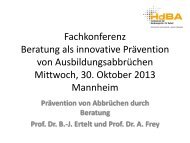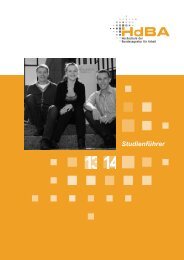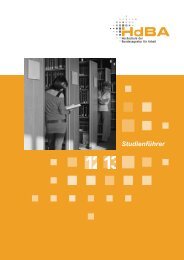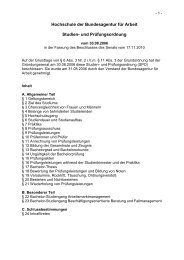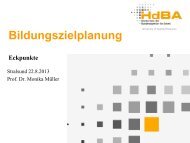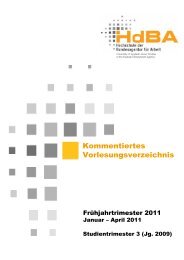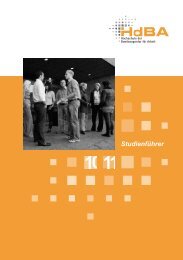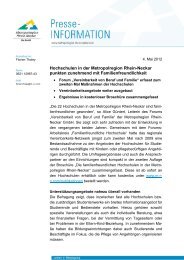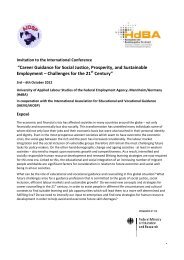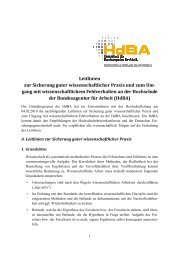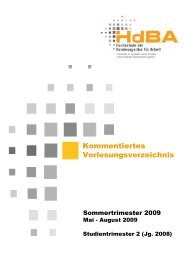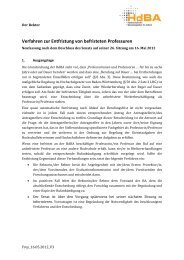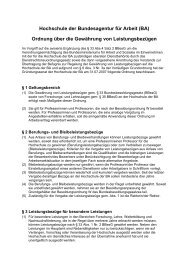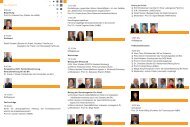Brain Drain - Hochschule der Bundesagentur für Arbeit
Brain Drain - Hochschule der Bundesagentur für Arbeit
Brain Drain - Hochschule der Bundesagentur für Arbeit
Create successful ePaper yourself
Turn your PDF publications into a flip-book with our unique Google optimized e-Paper software.
�����������������������������������������<br />
���������������������������������������<br />
�<br />
�<br />
3.2 Unit 1: Multicultural Environment<br />
Definitions and terminology, culture, nationality, multiculturalism, diversity,<br />
culture-centred concept<br />
All individuals exist in social, political, historical, and economic contexts. Counsellors<br />
are called upon to un<strong>der</strong>stand the influence of these contexts on individuals’<br />
behaviour. This module is focused on the preparation of the teaching guidelines on<br />
multicultural practice for counsellors working with individuals, and groups based on<br />
their ethnic/national heritage, and social group identity or membership.<br />
We are defining the word multicultural in these guidelines narrowly to refer to<br />
interactions between individuals from national groups in European culture. We define<br />
culture as the belief systems, and value orientations that influence customs, norms,<br />
practices, and social institutions, including psychological processes (language, caretaking<br />
practices, media, educational system), and organization (media, educational<br />
systems). Inherit in this definition is acknowledgement that all individuals are cultural<br />
beings and have an ethnic/national heritage. These definitions suggest that culture is<br />
fluid and dynamic and that there are both cultural universal phenomena and culturally<br />
specific or relative constructs.<br />
The term nationality in this module refers to ethnicity as the acceptance of the group<br />
mores and practices of one’s culture of origin and the concomitant sense of<br />
belonging to concrete nation. Moreover, individuals may have multiple national<br />
identities that operate with a different salience at different times.<br />
The term diversity refers to the individuals’ social identities, including nationality, age,<br />
language competences, socio-economic status, workplace role/position, religious,<br />
and spiritual orientation, and work/family concerns.<br />
The term culture-centred is used through the teaching guidelines programme as a<br />
concept of encouraging clients by counsellors through “cultural lens” as a central<br />
focus of professional behaviour. In culture-centred practices, counsellors recognize<br />
that all individuals, including themselves, are influenced by different contexts. Only<br />
culture-centred counselling may be ethically fair.<br />
79



